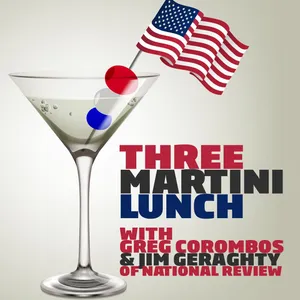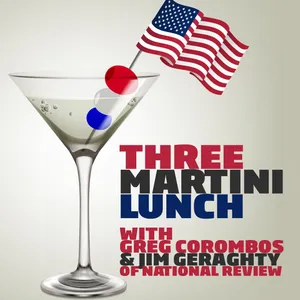Podcast Summary
Seizure of Russian superyachts as a symbol of larger issue: Western governments seized over $100 billion of Russian assets, including opulent yachts worth hundreds of millions, as a response to the war in Ukraine.
The seizure of Russian superyachts, like the $325 million Amadea, is a tangible symbol of the larger issue of Western governments sanctioning and freezing over $100 billion of Russian assets in response to the war in Ukraine. These boats, worth hundreds of millions of dollars, are opulent and outrageous examples of Russian wealth. The Amadea, which is 348 feet long with 6 decks, 2 baby grand pianos, and a large mosaic tiled pool, is just one example. Despite ownership disputes, the US government alleges it is owned by a sanctioned Russian oligarch. Regardless of ownership, when the war began last year, the fate of the Amadea and other seized yachts became a significant front in the conflict.
US jurisdiction over international assets and the seizure of Amadea superyacht: The US can seize international assets, like the Amadea superyacht, when individuals or entities violate US laws, such as sanctions. This action aims to send a message and disrupt the Russian elite, but comes with unexpected costs.
The US government's jurisdiction over international assets extends far beyond its borders due to the dominance of the US dollar in global transactions. This was demonstrated in the seizure of the superyacht Amadea, owned by a Russian oligarch who had allegedly violated US sanctions. Despite objections from the vessel's owner and a lengthy legal battle in Fiji, the US marshals were able to seize the yacht and bring it to the US for potential sale. The seizure is part of the US efforts to investigate, arrest, and prosecute individuals and entities enabling the Russian regime's unjust war in Ukraine. However, even seizing a superyacht comes with unexpected costs, such as upkeep, which the US taxpayers are now responsible for. The ultimate goal is to send a message to the Russian people that they have been exploited by their government and to disrupt the Russian elite. While the impact on ordinary Russians remains to be seen, the seizure of Amadea marks the US government's determination to use its financial power to support Ukraine and hold accountable those who violate US laws.
Maintaining Seized Russian Oligarch Yachts is Costly and Complex: The US government spends millions annually to maintain seized Russian oligarch yachts, with the goal of selling them for the highest price to benefit Ukraine. However, the legal process and uncertain sale prospects make this a complex and costly endeavor.
Seizing and maintaining a super yacht belonging to a Russian oligarch as a result of sanctions evasion is a complex and costly process. The yacht, which can cost millions to maintain annually, sits in a hostile environment that requires constant upkeep, insurance, and staff. The US government has a duty to maintain the yacht to prevent devaluation, as their eventual goal is to sell it for the highest price possible. The cost for maintaining just one yacht, like the Amadea, is estimated to be around 10 million dollars per year. The process of seizing the yacht involves a complicated legal process called forfeiture, where the US government must prove that the assets are proceeds of a crime. Only yachts where a crime has been committed and sanctions have been violated are targeted. The funds from the sale of the yacht can then be used to benefit Ukraine. However, it remains uncertain if all of these boats will be able to be sold to benefit Ukraine.
Russian Oligarchs' Superyachts in Legal Limbo: Seizure of Russian oligarchs' superyachts has left many in legal limbo, with European governments paying to maintain them, while their owners hope to reclaim them once sanctions are lifted, but this seems unlikely given the current political climate. Superyachts symbolize extreme wealth for people in a certain income bracket, regardless of nationality.
The seizure of superyachts linked to Russian oligarchs by various governments, particularly the United States and Western Europe, has put many of these luxury vessels in legal limbo. While there is a solid case for forfeiture in the United States, European governments are paying to maintain the boats, with the expectation that one day, sanctions will be lifted and the oligarchs will pay back the costs to reclaim their boats. However, given the current political climate, this seems unlikely, leaving many boats in an uncertain future. Moreover, the love for superyachts is not exclusive to Russians. As Evan Osno reported in The New Yorker, superyachts have become the final frontier of wealth for people in a certain income bracket, regardless of nationality. This trend was evident even before the current geopolitical situation. In summary, the seizure of Russian oligarchs' superyachts has left many of these vessels in legal limbo, with uncertain futures. The trend of owning superyachts is not limited to Russians, but rather a symbol of extreme wealth for people in a certain income bracket.
Surge in Demand for Superyachts During COVID-19: The pandemic fueled a surge in demand for superyachts, leading to waiting lists and premium prices. Wealthy individuals sought a safe haven on the water, making yachts a status symbol of luxury, privacy, and safety.
The market for superyachts has seen a significant surge in popularity and demand, particularly during the COVID-19 pandemic. The allure of owning a yacht has transcended various communities, leading to an inevitable arms race among the wealthy. The pandemic served as a catalyst for this trend, as it provided a safe haven for those with the means to retreat to their boats. This sudden surge in demand led to waiting lists for superyachts and a willingness to pay premium prices to get them sooner. The desire for a yacht can be attributed to both consumer instincts and a heightened awareness of mortality. For some, it represents an effective way to absorb excess capital without raising eyebrows. The largest privately owned yacht, the Azzam, is a testament to this trend, costing €500,000,000. The market for superyachts has become a status symbol for the ultra-rich, offering a unique blend of luxury, privacy, and safety.
The obsession with building the biggest and most luxurious yachts in the 1990s: Russian and Eastern European oligarchs, Silicon Valley's rise, and Jeff Bezos's current project have fueled the desire for large, custom, and prestigious yachts, with Dutch boats and fully custom designs being the most sought-after.
The world of luxury yachts is driven by a collision of money, power, and prestige. In the 1990s, after the fall of the Soviet Union, Russian and Eastern European oligarchs, as well as the rise of Silicon Valley, led to an obsession with building the biggest and most luxurious yachts. Jeff Bezos, founder of Amazon, is currently building what is believed to be the world's biggest sailboat, causing controversy when it required the dismantling of a bridge in Rotterdam. The value of a yacht goes beyond its size, with prestige and customization playing significant roles. Dutch boats are considered more prestigious than Italian ones, and fully custom yachts are preferred over series yachts. Ultimately, the length of the boat, known as LOA, is the coin of the realm in this industry, with some owners even admitting an element of phallic sizing.
Historical maritime law limits superyacht passenger count to 12: Superyachts offer unmatched luxury with high crew-to-guest ratios due to limiting passenger count to 12 per historical maritime law.
The luxury experience on superyachts is defined by the high crew-to-guest ratio, which results from a historical maritime law limiting the number of passengers to 12. This rule, established after the Titanic disaster, allows for an unprecedented level of service and attention for the guests. Despite recent events, the market for superyachts remains strong, although some yachts have gone into hiding by turning off their transponders to avoid scrutiny. The high seas remain a largely lawless terrain, and these yachts continue to exist and roam the oceans. The title of Evan Osnos' article on this topic in The New Yorker is "The Haves and the Have Yachts." The production of this episode was supported by Fundrise, a real estate investment platform.
Access real estate investment with a low minimum: Invest in Fundrise's flagship fund with $10, diversify portfolio, review prospectus before investing.
Investing in the Fundrise flagship fund is a quick and accessible way to add diversity to your portfolio. With a minimum investment of just $10 and the ability to sign up and get started on their website in minutes, Fundrise offers an opportunity for individuals who may not have had access to real estate investment before. However, as with any investment, it's important to do your due diligence. Make sure to review the investment objectives, risks, charges, and expenses of the fund before investing. This information can be found in the fund's prospectus, which is available on the Fundrise website. Remember, this is a paid advertisement. Always consult with a financial advisor or do your own research before making any investment decisions.






